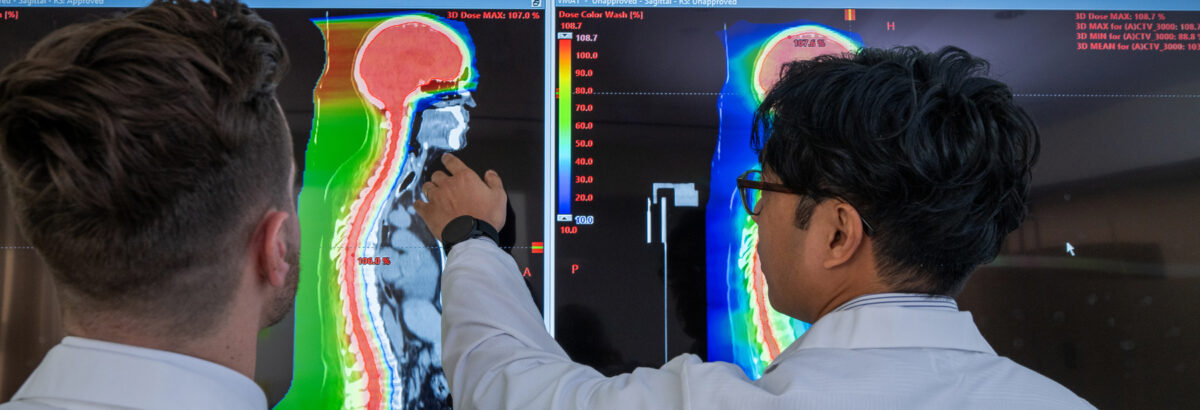Extreme Precision With Fewer Side Effects
Proton therapy is frequently used to treat cancers in the gastrointestinal tract including pancreatic and liver cancer. Proton therapy can uniquely deposit most of its radiation directly into the tumor while delivering very little irradiation to adjacent normal tissues like the esophagus, stomach, small and large intestine, liver, gallbladder and pancreas. This minimizes the risk of damage to these critical gastrointestinal organs, allowing for fewer side effects for patients.
Gastrointestinal Cancers We Treat Include
- Anal
- Bile duct
- Esophagus
- Liver
- Pancreas
- Rectum
- Small bowel (including duodenum)
- Stomach (gastric)
- Recurrent gastrointestinal tumors
Finding Strength In An Unexpected Diagnosis
After researching treatment options for anal cancer, Tracy chose proton therapy because of its ability to target her tumor without exposing nearby healthy organs and tissues to excess radiation.
Pencil Beam Scanning at the New York Proton Center
Patients at our center receive pencil beam scanning, a highly sophisticated and the most modern form of proton therapy. It uses an extremely narrow beam of protons to “paint” the intended radiation dose onto the tumor. The technology can target specific parts of the tumor with different radiation dose levels, while better protecting the surrounding normal tissues from irradiation.
Not All Proton Therapy Is Created Equal
Many other proton centers use “volumetric” beams that deliver a fixed quantity of energy to the entire tumor. But the pencil beam scanning technology at the New York Proton Center delivers “intensity-modulated proton therapy,” or IMPT.
Widely considered the most advanced form of proton therapy, IMPT can target different parts of the tumor with different radiation dose levels based on the prescription and the tumor’s exact location, while better protecting the surrounding normal tissues from irradiation. That’s particularly valuable when treating the most complicated tumors, those residing in the fissures of the head, neck and skull base.
Gastrointestinal Cancer Proton Therapy FAQs
Read our frequently asked questions about proton therapy for gastrointestinal cancer.



